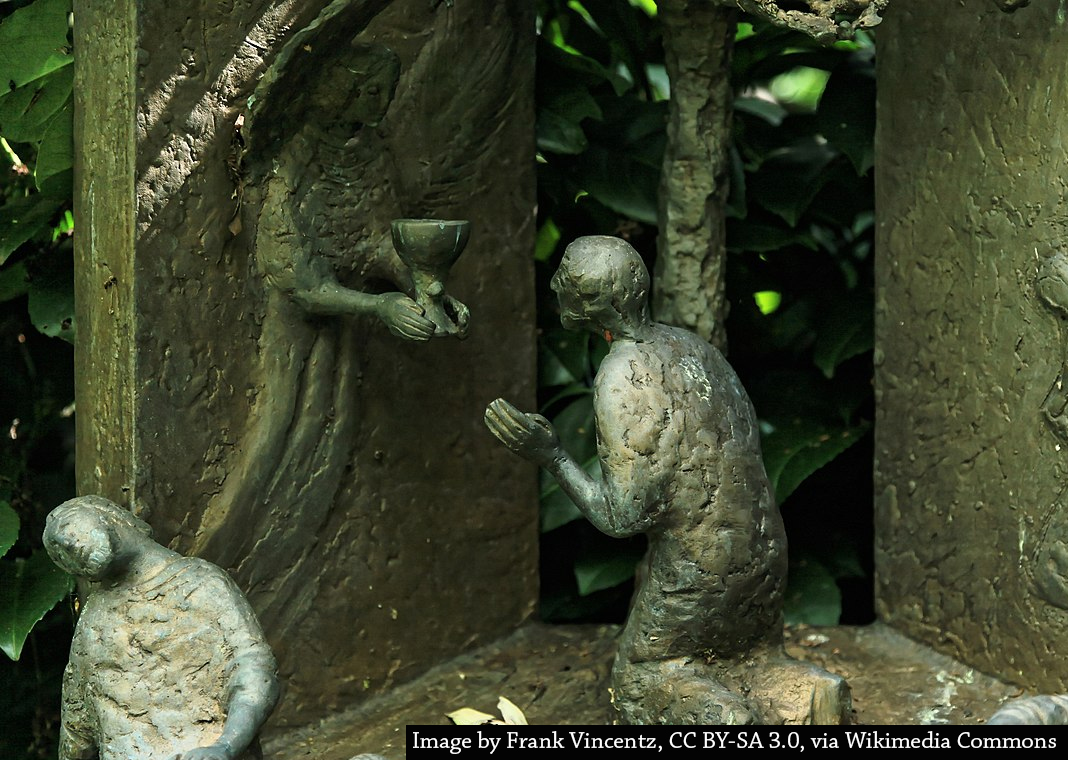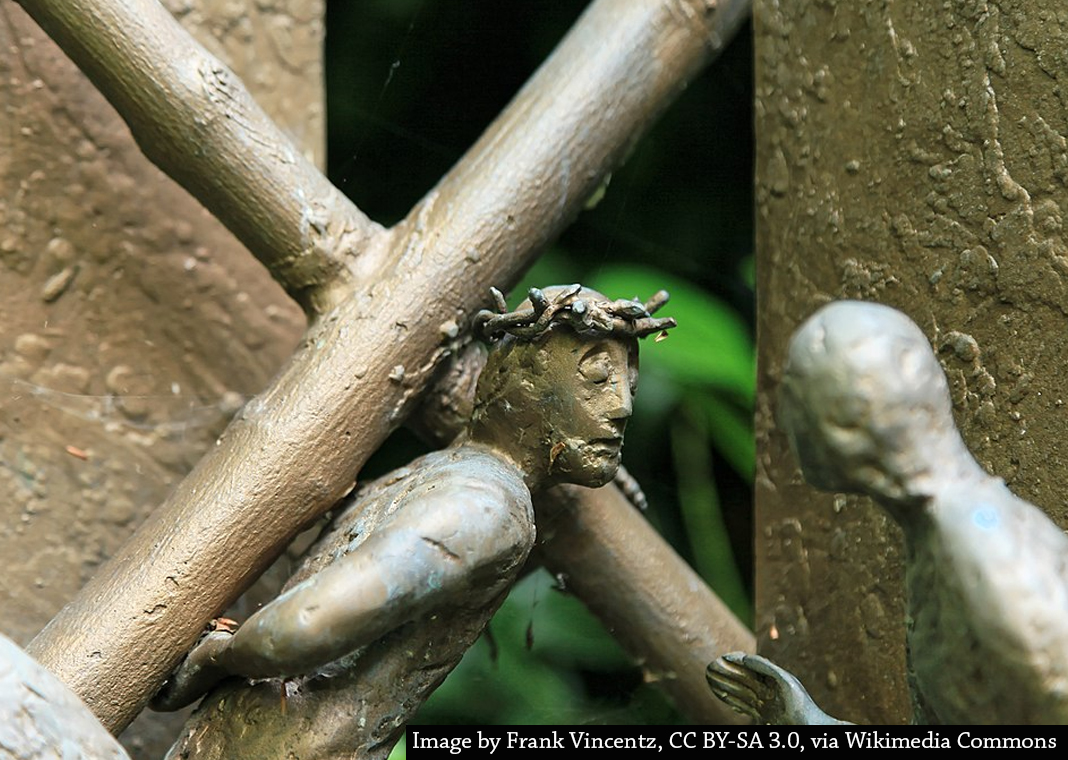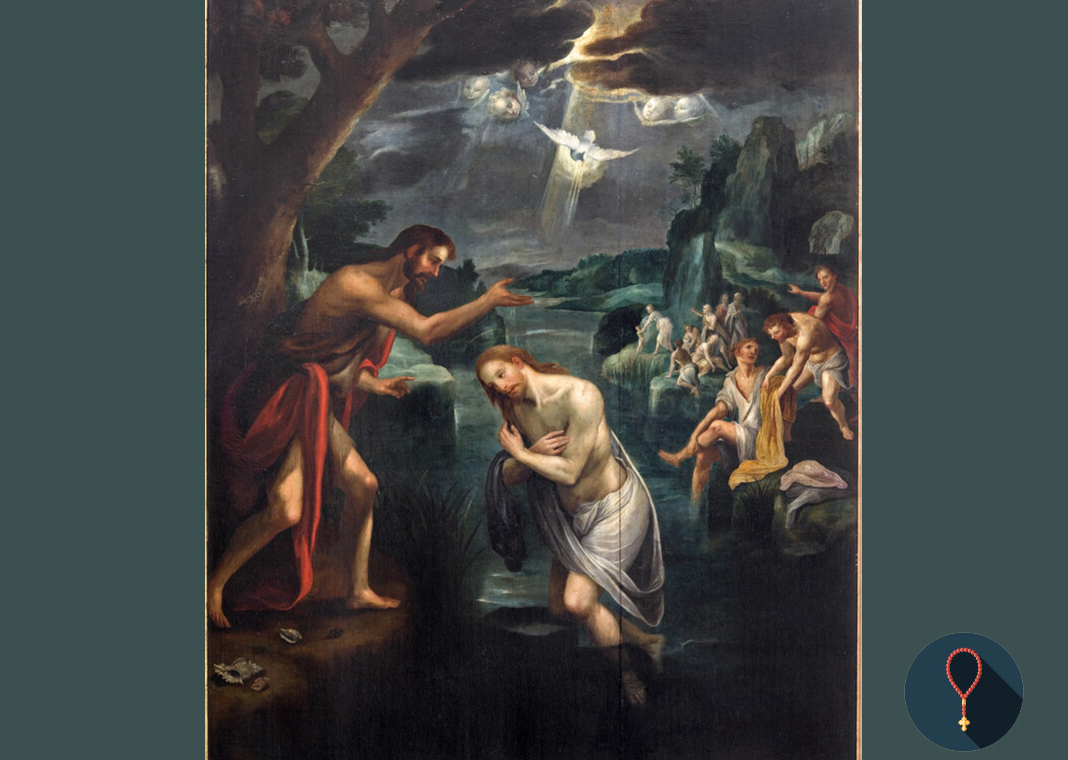
The Book of Genesis introduces us to the Garden of Eden—that place where Adam and Eve enjoyed absolute intimacy with God. It is within that paradise that everything comes crashing down as Adam and Eve disobey God and eat of the fruit of the Tree of Knowledge of Good and Evil. The gravity of this original sin is not just disobedience but rather the attempt to go it alone. The serpent had promised Adam and Eve that if they ate of the tree, they would become like God—no longer reliant upon God but completely self-sufficient. Therein lies the downfall of all human beings: the notion that we are self-sufficient.
It is no coincidence that the agony of Jesus takes place in a garden. Jesus is visiting the “scene of the crime,” so to speak, with an opportunity to right the wrong unleashed by Adam and Eve. Like them, he is tempted by the devil to proceed on his own: “Let this cup pass me by.” Now, while I would never attempt to psychoanalyze Jesus, if anyone I knew told me of enduring an experience described using words and phrases such as “sorrow and distress,” “troubled,” “anguished,” “in agony,” “overwhelmed,” “deeply grieved,” “sorrowful to the point of death,” “fell on his face,” or “sweat became like drops of blood” (all translations from the Gospel accounts of the Agony in the Garden), I would conclude that this person was having a panic attack. Jesus’ descent into hell—that place of separation from God—had already begun in that garden experience.
Interestingly enough, when I did a Web search for “panic attack,” the first thing that popped up was an ad saying, “You are not alone!” In the Garden of Eden, Adam and Eve sought to go it alone. Ever since, humankind has felt the pain of isolation and has longed to experience the nearness of God. In the Garden of Gethsemane, as Jesus experienced a feeling of isolation and abandonment—by his friends and by his Father—he chose not to go it alone, but to rely on his Father: “Not my will, but your will be done.” Luke’s Gospel even mentions the presence of an angel, a sign that God never left the side of his Son.
It was on the same night of Jesus’ agony in the garden that Jesus gave us the gift of the Eucharist so that we would never be alone. Our reception of the Eucharist is our ultimate rejection of self-sufficiency. In receiving the Eucharist, we admit that, at our deepest level, we are incapable of sustaining ourselves. We are completely dependent on God.
May we all reflect on how we can place our trust in God’s will, even and especially at those moments when we feel that God is nowhere near. For in saying the words, “thy will be done,” we draw nearer to the God who has never left our side.
Image by Frank Vincentz, CC BY-SA 3.0, via Wikimedia Commons.





Dear Joe That is a very good article of Jesus in the
Garden many thanks .It really highlights his struggle
God bless John Williamson
St Joseph’s Gerrards Cross Uk
You’re welcome, John. I’m glad you found the reflection to be helpful.
Dear Joe,
Thanks so much for your reflection on the Sorrowful Mysteries: The Agony in the Garden and the Myth of Self-Sufficiency.
I liked your observation: “In receiving the Eucharist, we admit that, at our deepest level, we are incapable of sustaining ourselves. We are completely dependent on God.
You’re most welcome, Bernadine! That thought about being incapable of sustaining ourselves, to me, is the core of spirituality!
Thankyou for your perspective,it’s inspirational,takes me a notch beyond all understanding on how deep is the power of the Holy Eucharist.
You’re most welcome, Jennifer! Indeed, the power of the Eucharist is deep!
We can give ourselves a hard time when we think we don’t reach out to God,
Joe, your take on the Agony in the Garden is akin to the same setting in Genesis. However, when I pray the rosary, especially the sorrowful mysteries, I always forget the garden scene and should not. I really think you are onto something.
Thanks
Thanks Deacon Jay…I find that mentions of locations are often very significant in Scripture – especially the Gospels – and that we need to pay attention in order to find connections to the Old Testament.
Being alone & then finding a connection which tells me I’m not, is something recurrent for now in my life.
Noticing when I start out, eg with a lonely moment of sadness in the passing of a close relative or an anxiety-making hospital intervention, a kindness happens unannounced somehow. Having a garden is always a source of reminding me about being a part of a bigger whole. I know how grateful this makes me feel. It might have passed me by, had it only been me, alone & palely loitering …
How beautifully articulated, Helen! Thanks!
Hello, Joe! After I read your article, I was truly amazed at your insight on the Garden of Eden & the Garden of Getsemani! What a powerful & beautiful reflection
of the events in these gardens as we apply the messages in our lives! May we continue to be dependent to God’s Will as we move through our Lenten journey! May God continue to bless & reward your ministry!
THanks, Gloria! I appreciate the kind words. Thanks also for your “prayer” that we all continue to recognize our dependence on God’s will!
Thank you Joe. Wonderful reflection.
You’re most welcome, Linda!